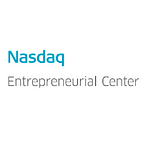How the Technology Behind Bitcoin Is Changing Money, Business, and the World
The authors of ‘Blockchain Revolution’ on the future of the Internet — and the modern economy
Steve Wozniak calls it “mind-blowing in its expansiveness and profundity.” Clay Christensen says it’s “Likely to become one of the iconic books of our time.” And The Financial Times calls it “a thorough, balanced, and enlightening guide to the next big thing.”
The book is Blockchain Revolution: How the Technology Behind Bitcoin Is Changing Money, Business, and the World (May 2016) by Don Tapscott and Alex Tapscott. And the revolution it touts is one made possible by blockchain, the digital ledger technology behind bitcoin that’s making transactions instant, secure, and resistant to fraud.
Don Tapscott (author of Wikinomics, The Digital Economy, and more) has teamed up with his son Alex Tapscott (CEO and founder of a VC firm specializing in blockchain companies) to envision the vast potential of a technology we’ve only begun to explore. They sat down with the Center to share their insights:
On calling blockchain a revolution, not a trend…
“For 35 years, we had the Internet of Information. Now with blockchain, we’re getting to the Internet of Value,” says Don. “We’re talking about profound change in the structure and architecture of organizations, as well as how we orchestrate our society and create public value like governments do. The term revolution is overused, but in this, case it’s appropriate.”
On how blockchain will impact industries other than banking…
“There’ll be different impacts on different industries,” says Alex. “But the overarching idea is that usually, tech revolutions lead to prosperity for a majority of people. If you look at the Internet, the prosperity track record is decidedly mixed.”
Alex explains that the music industry is one of the early players outside of banking experimenting with blockchain. “The first generation of the Internet turned music from an asset into free a commodity. To reign that in, intermediaries stepped in — like Spotify and Apple. The result is that creators of content receive less than ever before.”
“But blockchain startups are reinventing the music industry,” adds Alex. “Imogen Heap’s platform Mycelia uses blockchain to imbue songs with royalties and licensing information — so with each play, the song knows automatically whom to pay and how much without a third party. The power is in artist’s hands.”
On the pros and cons of a blockchain disruption…
Alex explains, “Some two billion people currently aren’t participating in the global economy. They don’t have access to a bank account or a [recorded] identity. No identity means no bank account which means no access to capital.” Blockchain makes it possible for anyone to access and share capital, without needing traditional forms of ID or a bank account.
Don adds that, “Remittances by immigrants to their families are the biggest flow of funds worldwide, with approximately $600 billion flowing from the developed to the developing world. Apps that use blockchain make it so the money goes to the people it’s intended for, rather than Western Union or third parties that heavily tax this activity.”
But any technology that streamlines comes with the potential to dislocate and disrupt.
Perhaps the most dramatic disruption is the complete redefinition of the firm. “One of the concepts we talk about in the book is a non-traditional company with no CEO, staff, or office — just software on blockchain. We thought that was far out,” says Alex.
“But when the book launched in May, we realized that the [newly launched] DAO looked like the hypothetical company we talked about in the book,” says Alex. “In just two weeks, it raised $160 million in a crowdfunding sale that was more than 10 times larger than the previous top crowdfund.”
So how does the recent $50 million DAO hack affect the future of blockchain? Don notes that it wasn’t Ethereum that was hacked: “It’s still a great platform for new blockchain applications and businesses. The problem was a flaw in ‘The DAO’ Smart Contract code itself that went unnoticed (amazingly) by everyone.”
“Regardless of whether money is recovered or not, there’s a silver lining. This will be a learning experience. Unlike Bitcoin in its early days, Ethereum is a mainstream platform used by companies like Microsoft and Deloitte that are more mature and capable of drawing lessons from failures and making important changes to avoid such problems in the future,” says Don. “But the whole thing does point to the need for actual humans to have some involvement managing new business models like this.”
On opportunities for entrepreneurs…
Don is optimistic about what blockchain means for entrepreneurs and smaller companies: “The basic idea of a blockchain company works across industries. It means that transaction costs in the open market will drop quite dramatically, so little companies can have the capabilities of big companies without the main liabilities — legacy systems, culture, and bureaucracy. If we do this right, the halcyon days of entrepreneurship are before us.”
The Economist Group and the Nasdaq Entrepreneurial Center invite you to our Executive Breakfast, featuring authors Don Tapscott and Alex Tapscott. The event will be moderated by Matthew Bishop, Senior Editor of the Economist, and will showcase a panel of experts on blockchain and the “Second Generation of the Internet”:
Blockchain Revolution Executive Breakfast
Thursday, June 23rd from 7:30am-10:00am
Nasdaq Entrepreneurial Center, 505 Howard St., San Francisco
Executive Breakfast: 7:30–8:15
Book Talk & Panel: 8:15–9:15
Networking and Book Signing: 9:30–10
Admission is free, but spaces are limited. REGISTER TODAY!
